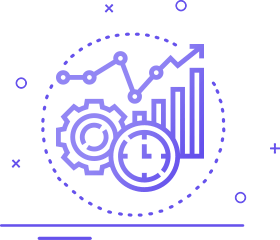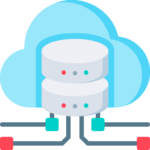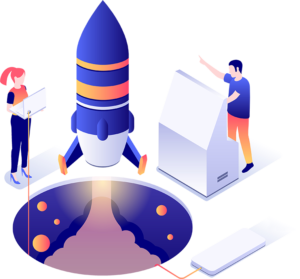pricing Plans
The Best Solutions for Our Clients
offers competitive rates and pricing plans to help you find a plan that fits the needs and budget of your business.
Basic Plan
Tritani periculis vix an. At eam nostrud eruditi, his quem purto nulla an.
Premium Plan
Tritani periculis vix an. At eam nostrud eruditi, his quem purto nulla an.
Standart Plan
Tritani periculis vix an. At eam nostrud eruditi, his quem purto nulla an.
Basic Plan
Tritani periculis vix an. At eam nostrud eruditi, his quem purto nulla an.
Premium Plan
Tritani periculis vix an. At eam nostrud eruditi, his quem purto nulla an.
Standart Plan
Tritani periculis vix an. At eam nostrud eruditi, his quem purto nulla an.
OUR CLOUD SERVICES
How We Can Help?

Building Microservices
Concurrent development of reusable and independent components known as services that can be integrated to form a native cloud application.

Best of Breed Development
Small teams independently develop each service using a programming language whose choice is dictated by the functionalities.

Continuous Delivery
Iterative development using an agile development framework for incremental delivery of features and functionalities.

Continuous Testing
Automated smoke test and regression tests, performance testing and security testing
CLOUD Services
● AWS
● GCP
● Azure
● Cloud Migration
● Data and Analytics
● Databases
● Content Delivery
● Security
● DevOps
● AI/ML
WhAT IS Cloud ?
 Imagine if you could access a powerful computer anytime, anywhere, without having to carry it around. That’s essentially what cloud computing offers.
Imagine if you could access a powerful computer anytime, anywhere, without having to carry it around. That’s essentially what cloud computing offers.
The cloud provides on-demand computing resources over the Internet, allowing for flexible, scalable, and cost-effective solutions. Whether you need storage, databases, or processing power, the cloud has it all.
Once you’ve got a strategy in place, it’s time for implementation. This is where your plans come to life.
Faq
Most Popular Questions
ACloud computing is the delivery of computing services over the internet, including storage, databases, servers, networking, software, and analytics.
Major Cloud Providers
When it comes to cloud computing, three names stand out: AWS, GCP, and Azure.
AWS (Amazon Web Services)
AWS is the largest and most comprehensive cloud platform. It offers over 200 fully featured services from data centers globally. Whether you’re looking for computing power, storage, or databases, AWS has a solution.
GCP (Google Cloud Platform)
GCP is known for its innovative tools and services, especially in data analytics and machine learning. Google’s expertise in search and data gives GCP a unique edge in providing powerful and scalable cloud services.
Azure
Microsoft Azure is a strong contender in the cloud market, offering a wide range of services and tools. Azure integrates well with Microsoft products, making it a great choice for businesses already using Microsoft technologies.
Cloud Migration
Moving to the cloud, known as cloud migration, is a significant step for any organization. It’s like moving to a new house: you need to plan carefully, pack your belongings, and ensure everything is set up correctly in your new home.
Benefits of Cloud Migration

- Scalability: Easily scale resources up or down based on demand.
- Cost Savings: Reduce costs by paying only for what you use.
- Flexibility: Access your applications and data from anywhere.
Steps for Cloud Migration
- Assessment: Evaluate current infrastructure and determine what can be moved to the cloud.
- Planning: Create a detailed migration plan.
- Execution: Move applications and data to the cloud.
- Optimization: Continuously monitor and optimize the cloud environment.
Data and Analytics
Data is the new oil, and the cloud is the refinery. Cloud platforms offer powerful tools for storing, processing, and analyzing data.
Data Storage Solutions
- Object Storage: Ideal for storing unstructured data.
- Block Storage: Suitable for databases and applications requiring low latency.
- File Storage: Useful for applications needing shared file systems.
Analytics Tools
- AWS Athena: A serverless query service to analyze data in Amazon S3.
- Google BigQuery: A fully managed, serverless data warehouse.
- Azure Synapse Analytics: Integrates big data and data warehousing.
Databases in the Cloud
Cloud databases offer the flexibility and scalability needed for modern applications.
Types of Cloud Databases
- Relational Databases: Structured data, SQL queries (e.g., Amazon RDS, Google Cloud SQL, Azure SQL Database).
- NoSQL Databases: Unstructured data, flexible schema (e.g., Amazon DynamoDB, Google Fire store, Azure Cosmos DB).
Benefits
- Managed Services: Reduce administrative overhead.
- Scalability: Easily scale as your data grows.
- High Availability: Ensure data is always accessible.
Content Delivery Networks (CDN)
A CDN is like a global delivery service for your website content. It distributes content across various locations worldwide, ensuring fast delivery to users.
Benefits of CDN 
- Reduced Latency: Deliver content quickly by serving it from a location close to the user.
- Scalability: Handle high-traffic loads efficiently.
- Improved Security: Protect against DDoS attacks.
Popular CDN Providers
- Amazon CloudFront
- Google Cloud CDN
- Azure CDN
Cloud Security
Security is a top concern when it comes to cloud computing. Think of the cloud as a high-security vault for your data.
Key Security Features
- Encryption: Protect data in transit and at rest.
- Identity and Access Management (IAM): Control who can access your resources.
- Security Monitoring: Continuously monitor for threats and vulnerabilities.
Best Practices
- Regular Updates: Keep systems and software updated.
- Strong Authentication: Use multi-factor authentication (MFA).
- Data Backups: Regularly back up data to prevent loss.
DevOps and Cloud
DevOps and the cloud go hand in hand. The cloud provides the perfect environment for implementing DevOps practices, which focus on improving collaboration between development and operations teams.
Benefits of Combining DevOps and Cloud
- Continuous Integration/Continuous Deployment (CI/CD): Automate the build, test, and deployment processes.
- Infrastructure as Code (IaC): Manage and provision infrastructure through code.
- Scalability: Quickly scale environments up or down.
Tools and Services
- AWS CodePipeline
- Google Cloud Build
- Azure DevOps
Artificial Intelligence and Machine Learning
The cloud has made AI and ML accessible to everyone, not just data scientists.
Cloud AI/ML Services
- AWS SageMaker: Build, train, and deploy machine learning models.
- Google AI Platform: Integrated tools for AI development.
- Azure Machine Learning: A comprehensive service for developing ML models.
Use Cases
- Predictive Analytics: Forecast future trends.
- Natural Language Processing (NLP): Understand and generate human language.
- Computer Vision: Analyze and interpret visual data.
Conclusion
The cloud is transforming the way we work, offering unprecedented flexibility, scalability, and power. Whether you’re migrating to the cloud, managing data, ensuring security, or implementing DevOps practices, the cloud has a solution for you. Embrace the cloud, and unlock the potential of your business.
ACloud migration offers scalability, cost savings, and flexibility by allowing businesses to pay only for what they use and access resources from anywhere.
AThe main types are relational databases (structured data, SQL queries) and NoSQL databases (unstructured data, flexible schema).
AA CDN improves performance by distributing content across multiple locations worldwide, reducing latency and handling high traffic efficiently.
ABest practices include regular updates, strong authentication (MFA), and regular data backups to protect against data loss and breaches.
Best for you
How CUSION Team Can Help
JOIN A WORLD-CLASS TEAM OF VISIONARY CREATORS AND CUTTING-EDGE INNOVATORS DRIVING
THE FUTURE OF INDUSTRY AND TECHNOLOGY.
analysis
Get Free CLOUD Analysis?
Experience CRM Analytics for free. Harness intelligent recommendations to make faster, more informed decisions and uncover actionable insights tailored to your business needs.








